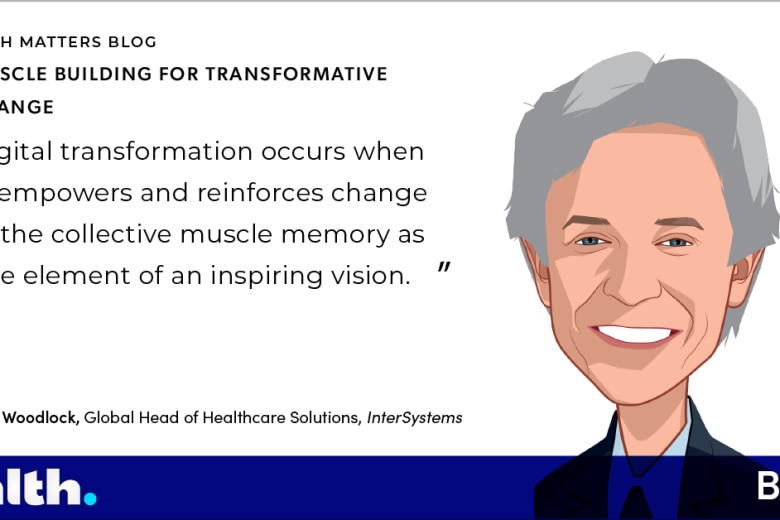Creating a high-value conversation about Healthcare with Kathleen Aller at the Healthcare Leadership Conference by InterSystems.
Kathleen Aller is on a mission to enable conversations between leaders in healthcare and information technology at InterSystems’ annual Global Summit in Boston later this month. In order to focus on problems rather than products, Aller and her team put together a special invite-only event for healthcare executives called the Healthcare Leadership Conference. I spoke with Aller about creating an environment of improvement, and about the creation of a high-value ecosystem she calls “Healthcare Unbounded”.
Healthcare Value Unbounded
Healthcare executives face significant barriers. Coming together face-to-face without media scrutiny can create an environment of progress. Leaders will come together to discuss barriers to healthcare, such as problematic financial models, that are not going to go away overnight. Some of the business issues in healthcare are widely covered, but others lack the type of exposure that ultimately motivates industry-wide change. Challenging the existing business models and facilitating a discussion across payer, provider, medtech and life sciences will be key. We have to share the barriers in order to break them down. Susan Dentzer is moderating a panel at the Global Summit, The High Value Health Ecosystem. The panel will feature Paul Markovich, President and CEO of Blue Cross Blue Shield of California; Dr, Gregg Meyer, Chief Clinical Officer for Partners Healthcare; Christian Howell, Vice President of Value Based Care Partnerships, Medtronic; and James Coutcher, Senior Principal, Enriched Studies, Real World Solutions, IQVIA.
Some Barriers are Fear-Based
We see unnecessary barriers a lot with information blocking. Moving the needle on data sharing has meant a lot of legislation- and data still doesn’t flow back and forth. In the past, data has been seen as an asset for those who have control of it–so how can we shift the mindset about data sharing? Providers don’t want payers to have data because sharing it means losing leverage. Payers don’t want to give information because of competition. How do we change the game?
Barriers are fear-based, or regulatory, or Systems-IT Based. In some cases, people are not being malicious and blocking information, they just don’t have the bandwidth to share, and are consumed with other priorities. This can be true at large electronic health record companies. For progress to happen in interoperability, we want to change the culture to focus on patient experience. Blue Shield of CA has been a champion of this kind of information sharing across payers and providers.
Measuring Impact
How do you measure whether or not new technologies are making an impact? When you look at measurement in healthcare, you want to make sure people are getting effective care. Looking at something like information sharing and individual patient health, for healthcare to progress we have to be committed to sharing sensitive information. Recruiting patients to be part of a clinical trial can be a challenge, and patient data sharing must be addressed.
Most patients don’t want to share their data with a for profit company that is going to use their health information to profit from them or motivate sales. If you ask patients, they are willing to share their data for research, but not business purposes. We want to talk about GDPR and HIPAA and patient privacy versus secondary use of data. There is tension on the regulations between making sure we do what’s right while promoting new innovations and new knowledge. Julia Riley will discuss the work of Coordinate My Care in the UK to make patient preferences known across the healthcare ecosystem at the Healthcare Leadership Conference. As we share records, we need to look beyond traditional healthcare providers and address social care agencies.
In the end this will be about the experience of healthcare. Changing the patient experience requires a great deal of collaboration across complex systems. Values about patient experience help overcome barriers and facilitating core conversations will be the heart of the Healthcare Leadership Conference during this year’s Global Summit in Boston.
*Originally posted on Healthcare IT Today on September 6, 2019.
Read more guest blog posts on InterSystems PULSE.
About the Author

Janae Sharp is a physician suicide loss survivor and the Founder and CEO of Sharp Index, a nonprofit dedicated to better physician mental health. Her work includes healthcare data and analytics marketing to improve healthcare outcomes for the underserved. Janae can code, and enjoys making communication easier in tech production, but her true passion is in matchmaking companies to create elegant health IT systems and improve health. She has worked with interoperability and social determinants of health and is an expert on patient and physician engagement. Janae has four children, enjoys learning, hiking, triathlon, and quilting. Follow Janae Sharp on Twitter: @CoherenceMed.




































